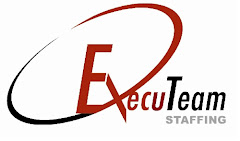How honest should you be when you’re interviewing? Unequivocally one hundred percent honest. But don’t confuse honesty with showing all your cards or not utilizing the power of presentation. Nor does honesty mean volunteering your dark secrets – perceived or otherwise - from the moment you walk through the door.
For far too many candidates, honesty is one extreme or the other. Either the candidate throws everything out there too early and unnecessarily or hides it because he’s defensive about whatever it is he doesn’t want to be honest about. Either way, it only causes trouble. Finding your perfect job does not mean giving all your power to the interviewing company.
This isn’t a process where everything you say and do screams "Hire me, hire me, hire me!" When you confess to your interviewer, or conversely, hide as much as you can, that’s what you’re thinking and that’s the message you’re conveying. Consequently, the interview never goes as smoothly as it otherwise might.
If there’s something in your employment history that’s caused you problems in the past, there’s no reason to blurt it out. You’ll get no recognition or appreciation for that. In fact, the only thing you’ll get in return is…..dropped from consideration. Instead, examine the circumstances under which those problems took place and ask questions to make sure those conditions aren’t present in the job for which you’re interviewing. If they are, gracefully decline to continue the process.
Being terminated, returning to the corporate world after self employment, and being unemployed for several months are just three instances that put candidates unnecessarily on the defensive. Flip it. Find the positive. What did you learn from being fired? What are your positive characteristics aside from what happened to cause the termination? And by the way, are you absolutely sure the termination was your fault? If it wasn’t, don’t say that outright! The phrasing of your presentation can convey the same meaning.
Recently a client asked me to critique his resume and cover letter. They’d just been done by a professional firm, and he wasn’t comfortable with the result. He lives in one state and is planning on moving to another. They advised him to omit the locations of his previous jobs saying "the job is about you, not the location."
They also advised him to get both a P.O. box and a phone number in his targeted city, then to enlist forwarding services. My question was, what happens when a prospective employer wants him to come in for an interview tomorrow…..because they think he lives only a few miles away? There’s a very easy way not to have the distance work against you so that you can search within an honest framework, but that’s another column.
Then, as if those two instances of duplicity weren’t enough, they tucked his self-employment time under a previous job.
Why walk into an interview crossing your fingers that they don’t find something out? How relaxed can you possibly be under those circumstances? And if they hire you and then discover the truth, you’re tainted, and everything else you do or say from that point on is suspect.
There’s one hard and fast rule that overrides any instance where you haven’t had to – or felt a reason to – provide what could be considered extraneous information. When you are asked a direct question, one usually designed to clarify, answer it directly, honestly and with a smile. Don’t lose your composure or get defensive. Handle it gracefully. Most situations aren’t the big deal so many candidates perceive them to be.
Keep the power within yourself. To find your perfect job, you need to know what you’re looking for. Your questions are designed to elicit that information, while your answers are designed to sell yourself, even as you’re processing what you’re learning. Remember, you have the power to make a choice too.
- Judi Perkins
Judi was a very successful recruiter for 22 years (15 contingency, 4 agency, 3 retained) and has now been a career coach for 3. The recruiter background, especially having been all three types, gives her deep insight into both sides of the hiring process. Now she teaches job seekers both the skill and psychological aspects of job hunting.
Sign up for her upcoming instructional webinar "Interview Techniques That Can Lead to Job Offers". Learn how to sell yourself, ask questions, create dialogue and get to the essence with a few simple techniques that are applicable at all levels.
Judi has been interviewed as an expert for books at each author's request; has her own book, "How to Find Your Perfect Job;:and has been quoted in numerous on and offline articles. She's also done radio interviews and speaking gigs. Her clients find jobs quickly, ending their months of frustration!
judi@findtheperfectjob.com
www.findtheperfectjob.com
From www.net-temps.com
Monday, January 25, 2010
Subscribe to:
Post Comments (Atom)




No comments:
Post a Comment